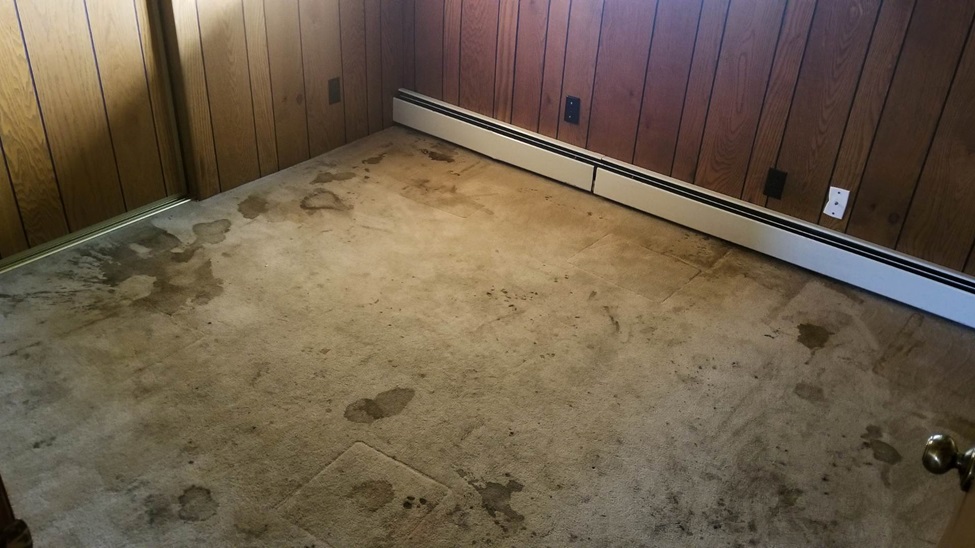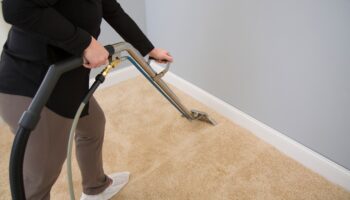Carpets are a common and cozy flooring choice in homes and offices, offering warmth and comfort to our living spaces. However, beneath the soft fibers and inviting appearance, dirty carpets can harbor hidden dangers that pose health risks to you and your family. In this blog post, we will explore the potential health hazards of dirty carpets, including allergens and mold, and explain how regular cleaning and maintenance can mitigate these risks, ensuring a safer and healthier indoor environment.
Allergens in Dirty Carpets
Dirty carpets can become a breeding ground for various allergens, making them a potential source of discomfort and health issues, particularly for individuals with allergies and respiratory conditions. Here are some of the common allergens found in dirty carpets:
Dust Mites: These microscopic creatures thrive in warm, humid environments, making carpets an ideal habitat. Dust mite droppings and body fragments can become airborne when disturbed, triggering allergy symptoms like sneezing, runny nose, and itchy eyes.
Pet Dander: If you have pets, their skin cells, fur, and saliva can become embedded in the carpet fibers. Pet dander is a common allergen that can cause allergic reactions and worsen asthma symptoms in sensitive individuals.
Pollen and Outdoor Allergens: Pollen and outdoor allergens can be tracked into your home and settle into your carpets. When disturbed, these allergens can become airborne, causing allergic reactions in susceptible individuals.
Mold Spores: Carpets in areas prone to moisture, such as bathrooms and basements, can develop mold growth. Mold spores released into the air can lead to respiratory problems, allergies, and other health issues.
Health Risks Associated with Dirty Carpets
Respiratory Issues: The accumulation of allergens in dirty carpets can lead to respiratory problems, especially for individuals with asthma or allergies. Prolonged exposure to these allergens can worsen existing conditions and trigger respiratory distress.
Skin Irritation: Carpets can harbor bacteria, fungi, and other microorganisms that can lead to skin irritation and infections if they come into contact with open wounds or broken skin.
Mold-Related Health Concerns: Mold growth in carpets can produce mycotoxins, which, when inhaled or touched, can lead to a range of health issues, including coughing, wheezing, skin irritation, and, in severe cases, mycotoxicosis.
Exacerbation of Allergies: Dirty carpets can worsen allergy symptoms, making individuals more susceptible to sneezing, coughing, congestion, and other discomforts associated with allergies.
How Regular Cleaning Mitigates Health Risks
Regular cleaning and maintenance of your carpets are essential steps in reducing health risks associated with dirty carpets. Here’s how:
Removal of Allergens: Frequent vacuuming with a high-quality vacuum cleaner equipped with HEPA filters can effectively remove dust mites, pet dander, and pollen from your carpets. Regular vacuuming prevents these allergens from becoming airborne and minimizes their impact on your health.
Prevention of Mold Growth: Keeping your carpets dry and well-ventilated can help prevent mold growth. Promptly address spills and moisture issues, and consider using a dehumidifier in areas prone to humidity.
Professional Carpet Cleaning: Periodic professional carpet cleaning is crucial for deep cleaning and removing embedded dirt, allergens, and mold. Professional cleaners have the equipment and expertise to tackle these issues effectively.
Immediate Stain Removal: Attend to spills and stains promptly to prevent them from setting in. Stains can create ideal conditions for mold growth and harbor bacteria if left untreated.
Regular Carpet Rotation: Rotating your carpets and rugs can distribute wear and tear evenly, preventing excessive dirt buildup in one area.
Use of Doormats and Entryway Mats: Placing doormats and entryway mats at entrances can help reduce the amount of dirt and allergens tracked into your home, minimizing their presence in your carpets.
Consider Carpet Alternatives: In areas prone to moisture, such as bathrooms and basements, consider using alternatives to wall-to-wall carpets, like tile, laminate, or vinyl flooring, which are less susceptible to mold growth.
Conclusion
The health risks associated with dirty carpets are not to be underestimated. Dust mites, pet dander, pollen, mold, and other allergens can accumulate in your carpets, leading to respiratory problems, allergies, skin irritations, and other health issues. However, regular cleaning and maintenance can significantly mitigate these risks, ensuring a healthier indoor environment for you and your family.
Remember to vacuum your carpets regularly, address spills promptly, and consider professional carpet cleaning as part of your routine. By taking these preventive measures, you can enjoy the comfort and beauty of your carpets without compromising your health. A clean and well-maintained carpet not only enhances the aesthetics of your space but also contributes to a safer and healthier home.


